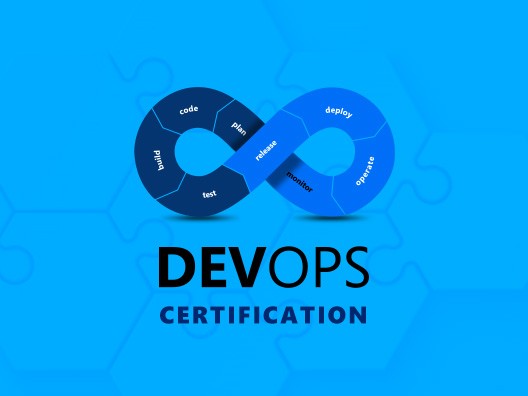The world of software development is undergoing a paradigm shift. DevOps, a collaborative approach that unites development (Dev) and operations (Ops) teams, is revolutionizing how applications are built, deployed, and managed. If you’re looking to upskill or pivot your career in the tech industry, DevOps training can equip you with the knowledge and tools to thrive in this dynamic environment. This comprehensive guide explores the world of DevOps training, empowering you to choose the program that aligns with your goals and unlocks your potential as a DevOps professional.
Table of Contents
- What is DevOps?
- Benefits of DevOps Training
- Types of DevOps Training
- Beginner Courses
- Intermediate Courses
- Advanced Courses
- Certification Courses
- Choosing the Right DevOps Training
- Top Providers of DevOps Training
- Conclusion
- FAQs
What is DevOps?
DevOps is a cultural and methodological approach that fosters collaboration, communication, and automation between development and operations teams. By breaking down silos and promoting continuous integration and delivery (CI/CD), DevOps enables faster software releases, improved application quality, and greater operational efficiency.
Benefits of DevOps Training
Investing in DevOps training in Chandigarh unlocks a treasure trove of advantages:
- Master In-Demand Skills: Learn essential DevOps tools and methodologies like Git, Docker, Kubernetes, Jenkins, and configuration management principles.
- Increase Employability: DevOps professionals are highly sought-after in the IT industry, with this skillset commanding competitive salaries.
- Boost Collaboration: Develop the communication and problem-solving skills necessary to bridge the gap between developers and operations teams.
- Enhance Automation Expertise: Learn to automate manual tasks associated with software deployment and infrastructure management, freeing up time for more strategic initiatives.
- Adapt to a Changing Landscape: Stay ahead of the curve in the ever-evolving world of software development and operations.
Types of DevOps Training
The spectrum of DevOps training caters to diverse skill levels and career aspirations. Here’s an overview of the most common options:
- Beginner Courses: Ideal for those with no prior DevOps experience, these courses introduce core DevOps concepts, methodologies, and essential tools like Git version control and configuration management.
- Intermediate Courses: Build upon foundational knowledge, delving deeper into CI/CD pipelines, containerization with Docker and Kubernetes, infrastructure automation with tools like Ansible, and cloud-based DevOps practices.
- Advanced Courses: Cater to experienced DevOps professionals, focusing on advanced automation techniques, security in DevOps pipelines, monitoring and logging practices, and DevOps leadership principles.
- Certification Courses: Prepare for industry-recognized DevOps certifications like Certified Kubernetes Administrator (CKA) or Certified AWS DevOps Engineer – Professional (DOP-C01) to validate your skills and enhance your resume.
Choosing the Right DevOps Training
Selecting the ideal program hinges on your specific skills and goals:
- Skill Level: Are you a complete beginner or do you possess some foundational knowledge of DevOps principles and tools? Choose a course aligned with your current skill set.
- Learning Objectives: Identify your goals – acquiring foundational DevOps skills, specializing in a particular area like cloud-based DevOps, or preparing for a specific certification.
- Learning Style: Do you prefer instructor-led online courses, interactive bootcamps, self-paced video tutorials, or a blended approach?
- Time Commitment: Evaluate your available time. Courses range from short introductory sessions to comprehensive programs lasting several months.
- Budget: Compare the costs of different programs, considering tuition fees, certification exam costs (if applicable), and course materials.
Top Providers of DevOps Training
Several esteemed institutions and platforms offer high-quality DevOps training:
- Online Course Platforms:
- Udemy
- Coursera (specializations from universities and industry leaders)
- A Cloud Guru (specializes in cloud-based DevOps)
- Linux Academy
- Bootcamp Providers:
- Springboard
- General Assembly
- The DevOps Institute
- Cloud Providers:
- Amazon Web Services (AWS) offers DevOps training and certifications.
- Microsoft Azure offers DevOps training and certifications.
- Professional Organizations:
- The DevOps Institute offers training and certifications.
Conclusion
DevOps course in Chandigarh equips you with the skills and knowledge to navigate the dynamic world of software development and operations. By choosing the right program, committing to learning, and continuously honing your skills, you can position yourself for success in this high-demand field. Remember, DevOps is not just a set of tools; it’s a cultural shift that emphasizes collaboration and automation. Embrace this philosophy, and you’ll be well on your way to becoming a valuable asset in any DevOps team.


